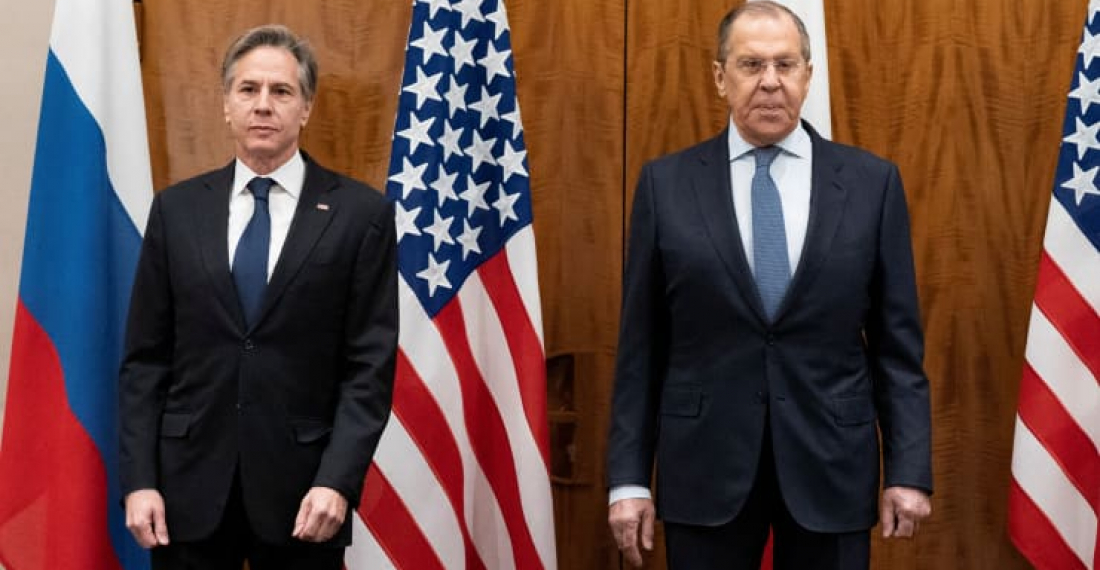The hastily organised meeting between the US Secretary of State, Antony Blinken and Russia's foreign minister, Sergei Lavrov, took place in Geneva on Friday (21 January). On the agenda was the current tension in Europe provoked by a massive Russian military build up on the borders of Ukraine.
The US, NATO, the EU and their members and partners believe Russia is about to intervene militarily in Ukraine. The message from Blinken to Lavrov on Friday during one and a half hours of talks was clear and simple, "Don't do it, because the consequences will be swift and severe".
Speaking after the meeting Blinken told journalists:
This was not a negotiation but a candid exchange of concerns and ideas. I made clear to Minister Lavrov that there are certain issues and fundamental principles that the United States and our partners and allies are committed to defend. That includes those that would impede the sovereign right of the Ukrainian people to write their own future. There is no trade space there – none.
Blinken told journalists that the preferred route for the US and its European allies and partners was diplomacy, but that if Russia pursued another route the response will be swift and severe:
To the extent that Russia’s engaged for now in diplomacy, but at the same time continues to take escalatory actions, continues to build its forces on Ukraine’s borders, continues to plan for aggressive action against Ukraine, we and all of our allies and partners are equally committed to make sure we are doing everything possible to make clear to Russia that there will be, as I said, a swift, severe, and united response to any form of aggression by Russia directed toward Ukraine.
During the meeting Russia and the US agreed to continue discussions on issues related to the future of European security. Secretary of State Blinken said that he also discussed with Lavrov the way forward:
Let me say as well that he heard from us and from me that what is for us an inviolable rule: nothing about Ukraine without Ukraine, nothing about NATO without NATO, nothing about Europe without Europe. Based on our discussion, I believe we can carry forward this work of developing understanding agreements together that ensure our mutual security, but that’s contingent on Russia stopping its aggression toward Ukraine. So that’s the choice that Russia faces now. It can choose the path of diplomacy that can lead to peace and security or the path that will lead only to conflict, severe consequences, and international condemnation. The United States and our allies and partners in Europe stand ready to meet Russia on either path, and we will continue to stand with Ukraine.
Blinken told journalists that he will now return to Washington to brief president Biden, the National Security Council and Congress, and to hold further consultations with allies.






